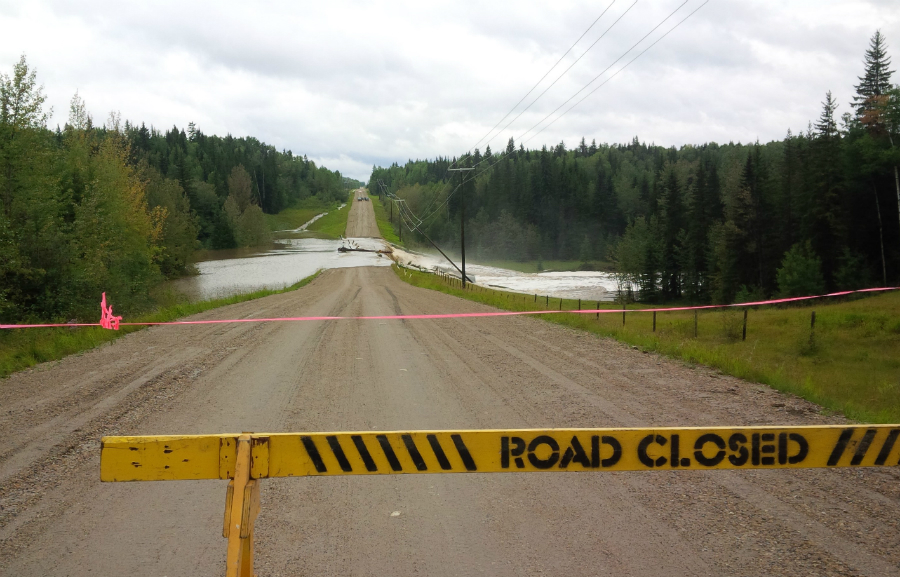Photo: Road washout in the Modeste subwatershed flood in August 2016. Credit: County of Wetaskiwin
The Government of Alberta is investing $720,000 in farmlands through ALUS Canada as part of a new grant program to improve flood resiliency and water quality in the province.
Environment and Parks Minister Shannon Phillips said that the Watershed Resiliency and Restoration Program funding is part of the provincial strategy for reducing the risk of flooding by investing in lands upstream of communities to increase floodwater storage capacity. ALUS Canada will use the money to enable to farmers and ranchers to establish and maintain 650 acres of land for wetland restoration and riparian enhancement.
“We are excited to start putting this funding to good use on the ground in the Modeste subwatershed,” said Lara Ellis, director of strategic initiatives at ALUS Canada. “ALUS will quickly establish new natural infrastructure projects on agricultural land to mitigate flooding, increase drought resilience and improve water quality for Albertans.”
The ALUS Canada program provides a market for ecosystem services delivered by farmers and ranchers who sign on to enhance, monitor, and manage the ecosystem services on working lands. The program provides technical expertise and support employing standardized biomonitoring methods for carbon storage, water purification, flood control, erosion control, and wildlife habitat; and it establishes a monetary value per acre of farmland for restoration sites across Canada.
The latest investments will be concentrated in the Modeste subwatershed of the North Saskatchewan River, which the province has identified as being a high priority for flood mitigation and water quality, and a moderately-high priority for drought. ALUS Partnership Advisory Committees at the community level will identify the best sites that will provide the highest environmental impacts.
The WRRP grant also supports a cost-benefit analysis for the project of using nature to deliver infrastructure-related services. Dr. Wanhong Yang of the University of Guelph will lead the watershed modelling exercise, while Dr. Marian Weber of Innotech Alberta will undertake the economic analysis.
This work builds on important research undertaken by the North Saskatchewan Watershed Alliance, which identified the impacted riparian areas and is working with municipal partners to set riparian health objectives.
ALUS Canada is a Weston Family Initiative. Partners for this project include the University of Guelph, Innotech Alberta, the North Saskatchewan Watershed Alliance, and upstream municipal partners with additional funding support from EPCOR, the City of Edmonton, Natural Resources Canada, and the McConnell Foundation









